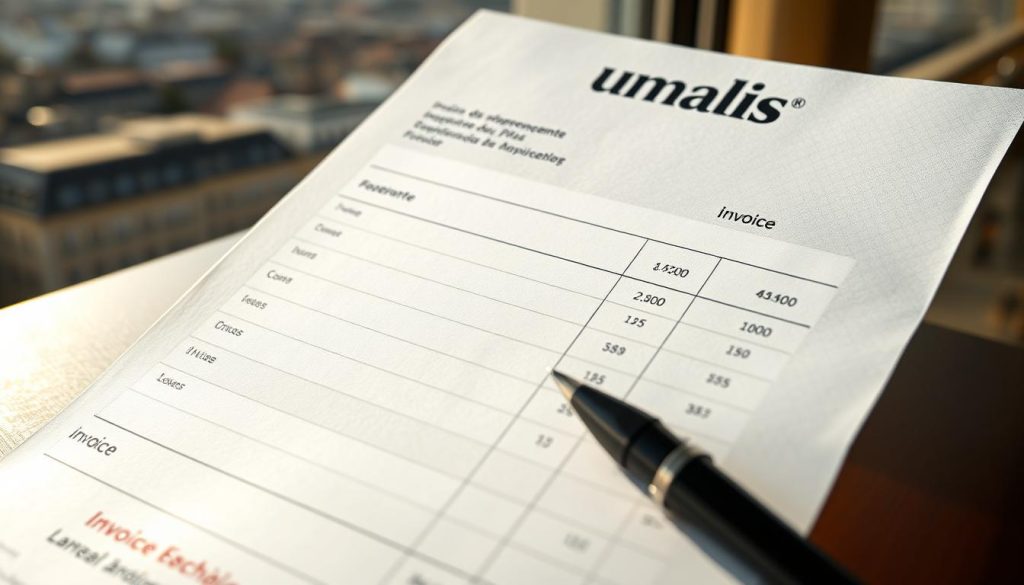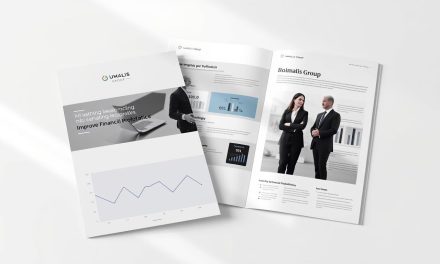Did you know France’s self-employed workforce has grown by 92% in just 10 years? A Boston Consulting Group study reveals this explosive trend, fueled by professionals prioritizing freedom and meaningful work. The pandemic accelerated this shift, making freelancing a cornerstone of France’s modern economy.
What sets France apart? Unlike many countries, it offers robust legal protections and financial incentives for freelancers. Healthcare access, retirement plans, and tax advantages create a safety net rarely seen elsewhere. Combine this with a high standard of living, and it’s clear why professionals are thriving here.
But success demands more than opportunity—it requires strategy. Our guide simplifies the journey, from launching your venture to maintaining compliance. You’ll learn how to balance flexibility with long-term security, turning short-term gigs into a sustainable career.
Table of Contents
Key Takeaways
- France’s independent workforce nearly doubled since 2013
- Legal safeguards and financial perks make freelancing safer here
- Cultural shifts prioritize work-life balance over traditional roles
- Strategic planning prevents income volatility
- Local regulations favor small business growth
Introduction to Freelancing and Independent Contracting in France
With its rich history and modern incentives, France stands out as a freelancer’s haven. Professionals choosing freelance work here gain access to Europe’s third-largest economy while enjoying medieval villages and Mediterranean coastlines. The country’s unique fusion of cultural heritage and business-friendly policies creates fertile ground for sustainable careers.
France’s legal framework offers unmatched safeguards for self-employed professionals. Mandatory health coverage, retirement options, and tax breaks reduce financial risks often associated with freelance work. As legal expert Émilie Rousseau notes:
« France doesn’t just tolerate independent professionals—it actively empowers them through structured support systems. »
Consider these advantages compared to other markets:
| Feature | France | Germany | USA |
|---|---|---|---|
| Healthcare Access | Full coverage | Partial subsidies | Private plans only |
| Social Charges | 22% (reducible) | 28% fixed | 15.3% self-employment tax |
| Startup Timeline | 3-4 weeks | 6-8 weeks | 1-2 days |
While registration processes require careful navigation, France’s regional business hubs provide free guidance. Whether establishing a consultancy in Lyon or a tech venture in Toulouse, you’ll find tailored resources for every professional path. The initial paperwork investment pays dividends in long-term stability and market access.
Independent Contractor: Definition and Legal Distinctions
What defines a professional’s status in France’s evolving workforce? The answer lies in three legal pillars courts use to differentiate self-employed workers from traditional employees. At the heart of this distinction: autonomy versus authority.
French labor law hinges on subordination as the decisive factor. Unlike employees, contractors operate without direct oversight. They control schedules, workspaces, and methods. A 2022 Cour de Cassation ruling confirmed:
« True independence exists when professionals bear economic risk and organize their activity freely. »
Consider these critical differences:
| Aspect | Contractor | Employee |
|---|---|---|
| Work Control | Full autonomy | Employer-directed |
| Tools/Equipment | Self-provided | Company-supplied |
| Multiple Clients | Allowed | Restricted |
| Task Delegation | Permitted | Prohibited |
Three elements determine classification under French law:
- Task execution independence
- Payment structure flexibility
- Absence of disciplinary oversight
Misclassification risks occur when clients impose employee-like constraints. Protect your status by documenting legal rights and obligations in written agreements. Regular self-audits ensure your working relationships align with true independence principles.
The Benefits of Embracing a Freelance Career in France
France’s freelance ecosystem combines professional autonomy with unique advantages rarely matched elsewhere. Professionals gain control over their work rhythm while accessing Europe’s most stable social safety nets. This blend transforms short-term gigs into long-term careers with predictable income streams.
| Feature | Freelancers | Employees |
|---|---|---|
| Schedule Control | Full flexibility | Fixed hours |
| Client Diversity | Multiple sources | Single employer |
| Income Growth | Rate negotiation | Fixed increments |
| Location Freedom | Work anywhere | Office-bound |
Freelancers in France report 37% higher job satisfaction according to recent surveys. This stems from three key factors:
- Ability to align projects with personal values
- Reduced commute time through remote options
- Direct correlation between effort and earnings
While traditional roles offer stability, France’s system empowers independent professionals to build security on their terms. Tax incentives and healthcare access remove barriers that hinder freelancers elsewhere. The result? A career model balancing freedom with financial predictability.
Establishing Your Freelancing Journey: First Steps in France

France’s structured approach to self-employment simplifies launching your venture. Start by confirming your eligibility – EU/EEA/Swiss nationals work freely, while others need the entrepreneur/profession libérale visa. This special permit serves as your gateway to legally operate as a contractor or freelancer.
| Category | Definition | Examples |
|---|---|---|
| Artisan | Handcrafted goods production | Furniture makers, bakers |
| Liberal Professional | Intellectual/technical services | Consultants, translators |
| Merchant | Commercial goods trading | Retailers, wholesalers |
Proper classification impacts your tax rates and registration process. Design professionals creating physical products often register as artisans, while IT specialists typically fall under liberal professionals. Always verify if your field requires specific certifications – teaching or healthcare roles demand proof of qualifications.
Non-EU applicants from certain countries must submit business plans during visa applications. As immigration lawyer Claire Dubois advises:
« Demonstrate clear market demand for your services. French authorities want proof your activity contributes to the local economy. »
This preparatory work ensures smooth entry into France’s freelance ecosystem. Address these fundamentals early to focus on building your client network and professional reputation.
Navigating French Business Registration Procedures
Proper registration forms the backbone of every successful business activity in France. The country’s streamlined systems help professionals establish legitimacy while maximizing operational flexibility. Let’s simplify your path to compliance.
Choosing the Right Legal Structure for Your Activity
France offers four primary frameworks for business activity registration:
| Structure | Best For | Annual Turnover Limit |
|---|---|---|
| Micro-entrepreneur | Service providers | €77,700 |
| Individual Entrepreneur (EI) | Asset protection | No ceiling |
| SNC Partnership | Shared ventures | Unlimited |
| SARL Company | High-growth projects | Unlimited |
The micro-entrepreneur scheme remains popular for its simplified processes – no VAT obligations and automatic expense calculations. As legal advisor Marc Lefevre notes:
« 70% of new registrations choose micro-entrepreneur status initially. It’s the fastest way to test your market. »
Registering with URSSAF and Other Authorities
Follow these steps to obtain your SIRET number:
- Complete the INPI online form
- Submit proof of address and ID
- Receive SIREN/SIRET codes within 15 days
Service-based professionals register through URSSAF’s portal, while commercial activities use the CFE. Your annual turnover declaration happens through the same platform, with pre-filled forms simplifying compliance.
Remember: Your SIRET number acts as a business fingerprint – required for contracts, invoices, and tax filings. Keep digital copies accessible for all professional transactions.
Managing Invoicing and Payment Collection Effectively

Mastering invoicing practices separates thriving professionals from those chasing payments. In France, precise documentation ensures timely compensation while maintaining legal compliance. Let’s simplify the essentials for smooth financial operations.
Essential Invoice Requirements and Details
Every valid French invoice must contain these 10 elements:
- « Facture » clearly stated
- Your full business name and address
- SIRET number identification
- Client’s legal information
- Unique invoice number and date
- Detailed service descriptions
- Pre-tax (HT) and total (TTC) amounts
- Payment due date and methods
- « TVA non applicable, art. 293 B du CGI » if exempt
- Penalty terms for late payments
Popular Payment Methods for Independent Contractors
Choose transaction channels that balance speed with cost efficiency:
| Method | Processing Time | Fees | Best For |
|---|---|---|---|
| Bank Transfer | 1-3 days | €0-€5 | Corporate clients |
| PayPal | Instant | 3.4% + €0.25 | International payments |
| Wise | 1-2 days | 0.5%-1.5% | Multi-currency deals |
| Check | 5-8 days | €0 | Local small businesses |
Digital platforms now handle 68% of freelance transactions in France. As financial advisor Léa Martin advises:
« Automate payment reminders through accounting software. It preserves client relationships while ensuring cash flow consistency. »
Understanding Taxes and Social Security Contributions for Freelancers
France’s tax system offers unique advantages for self-employed professionals who master its structure. Let’s simplify how income tax and social security contributions work to help you maintain financial health while staying compliant.
Progressive Income Tax and Deductions Explained
Your personal income tax depends on annual business profits through a tiered system:
| Income Bracket | Tax Rate |
|---|---|
| Up to €10,084 | 0% |
| €10,085 – €25,710 | 11% |
| €25,711 – €73,516 | 30% |
| €73,517 – €158,122 | 41% |
| Over €158,123 | 45% |
Three strategies optimize your tax position:
- Claim professional expenses (office supplies, training)
- Use micro-entrepreneur flat-rate deductions
- Contribute to approved retirement plans
Social Security Contribution Rates and Relief Options
Mandatory social security contributions cover healthcare and pensions. Rates vary based on business structure:
- 22% for standard freelancers
- 12.8% under micro-entrepreneur regime
- 6.5% for first-year professionals
« New registrants receive 50% contribution relief – a significant boost during startup phases, » notes tax advisor Pierre Garnier.
All professionals must create a URSSAF account within 8 days of registration. This portal handles payments and provides real-time contribution tracking. Remember: Quarterly declarations ensure accurate calculations and avoid penalties.
VAT Obligations, Tax Regimes, and Financial Compliance
How does France’s tax system balance flexibility with responsibility for self-employed professionals? The answer lies in its tiered thresholds and multiple compliance paths. Your VAT obligations activate when exceeding €34,600 in service revenue or €86,900 for commercial activities annually.
Three progressive tax regimes adapt to your business growth:
Micro-BIC simplifies filings for earnings under €77,700 with flat-rate deductions. The simplified real regime (€77,700-€254,000) allows detailed expense claims. High-growth ventures above €254,000 use the normal regime for precise financial reporting.
VAT rates vary by goods services type:
- 20% standard rate
- 10% for tourism services
- 5.5% for essential goods
- 2.1% for medical products
Essential tax return forms include:
• Form 2042 (main declaration)
• 2042C-PRO for professional income
• Sector-specific supplements
First-year filers receive automated pre-filled declarations through France’s digital portal. As tax consultant Sophie Mercier advises: « Review your regime annually – business growth often triggers beneficial threshold crossings. »
Smart compliance preserves your financial health while meeting legal requirements. Regular reviews ensure your chosen framework aligns with current annual turnover and project scope.
FAQ
How do I prove my self-employed status to clients in France?
Secure a SIRET number through business registration and provide invoices stating « TVA non applicable » if exempt. Maintain contracts specifying project-based work, not employment terms. Separate business/personal finances to reinforce your professional status.
What’s the difference between micro-enterprise and auto-entrepreneur regimes?
The auto-entrepreneur is a simplified micro-enterprise category with flat social charges (22% of revenue). Both use the same tax declarations but differ in annual turnover limits: €72,600 for services vs. €176,200 for goods under micro-enterprise rules.
Can foreign freelancers access France’s healthcare coverage?
Yes. Registering with URSSAF grants access to Sécurité Sociale after 3 months of activity. Contribution rates start at 22% of net profits, covering health insurance, pension, and family benefits. EU nationals benefit from portable coverage during transitional periods.
How does progressive income tax apply to freelance earnings?
France uses a 0-45% sliding scale based on household income. Freelancers declare net profits (revenue minus 34% flat deduction for service providers). Quarterly advance payments are required, reconciled annually via déclaration 2042 C PRO.
When must freelancers charge VAT on invoices?
Mandatory VAT applies if annual turnover exceeds €34,400 for services or €85,800 for goods. Below these thresholds, use « TVA non applicable ». Special real-property and BIC/BNC regimes have distinct rules – consult a comptable for sector-specific compliance.
What payment methods ensure smooth client transactions?
Use SEPA transfers (70% market share), PayPal Business (for international), or Stripe. Include IBAN/RIB details on invoices. Avoid checks – French banks charge €7-15 per deposit. Escrow platforms like Lemonway add security for large projects.





